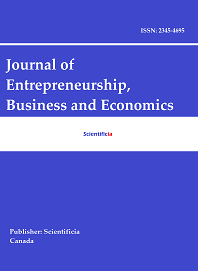Proposed Framework for Brand Loyalty in Wearable Devices in Malaysia
Abstract
Wearable devices are electronic devices designed to be worn on the human body and equipped with sensors, connectivity features, and other technologies. The rapid growth of technology enhances the functions of wearable devices, and it could be a new trend or fashion. Therefore, the purpose of this study is to develop a conceptual framework to investigate factors that influence consumer brand loyalty in wearable devices in Malaysia. This study explores the relationship between consumers and brand loyalty through the lens of the theory of Stimulus Organism Response (SOR), the development of a brand loyalty conceptual framework based on the interaction between internal cognitive and affective processes and the organism. A quantitative analysis method is proposed as a data collection process by questionnaire survey. This study makes significant theoretical contributions by integrating customer satisfaction and brand trust as mediating roles in this conceptual framework. The proposed conceptual framework also highlights the importance of applying the SOR theory to analyze and enhance brand loyalty in wearable devices, offering valuable insights such as future research direction including user experiences, personalized features, and marketing strategies in shaping brand loyalty for the wearable devices industry.
Conceptual Paper
Keywords: Wearable devices, Stimulus Organism Response, Brand loyalty
Reference to this paper should be made as follows: Ong, Y.K., & Goh, Y.N. (2024). Proposed Framework for Brand Loyalty in Wearable Devices in Malaysia. Journal of Entrepreneurship, Business and Economics, 12(2), 1–27.

This work is licensed under a Creative Commons Attribution-NonCommercial 4.0 International License.






